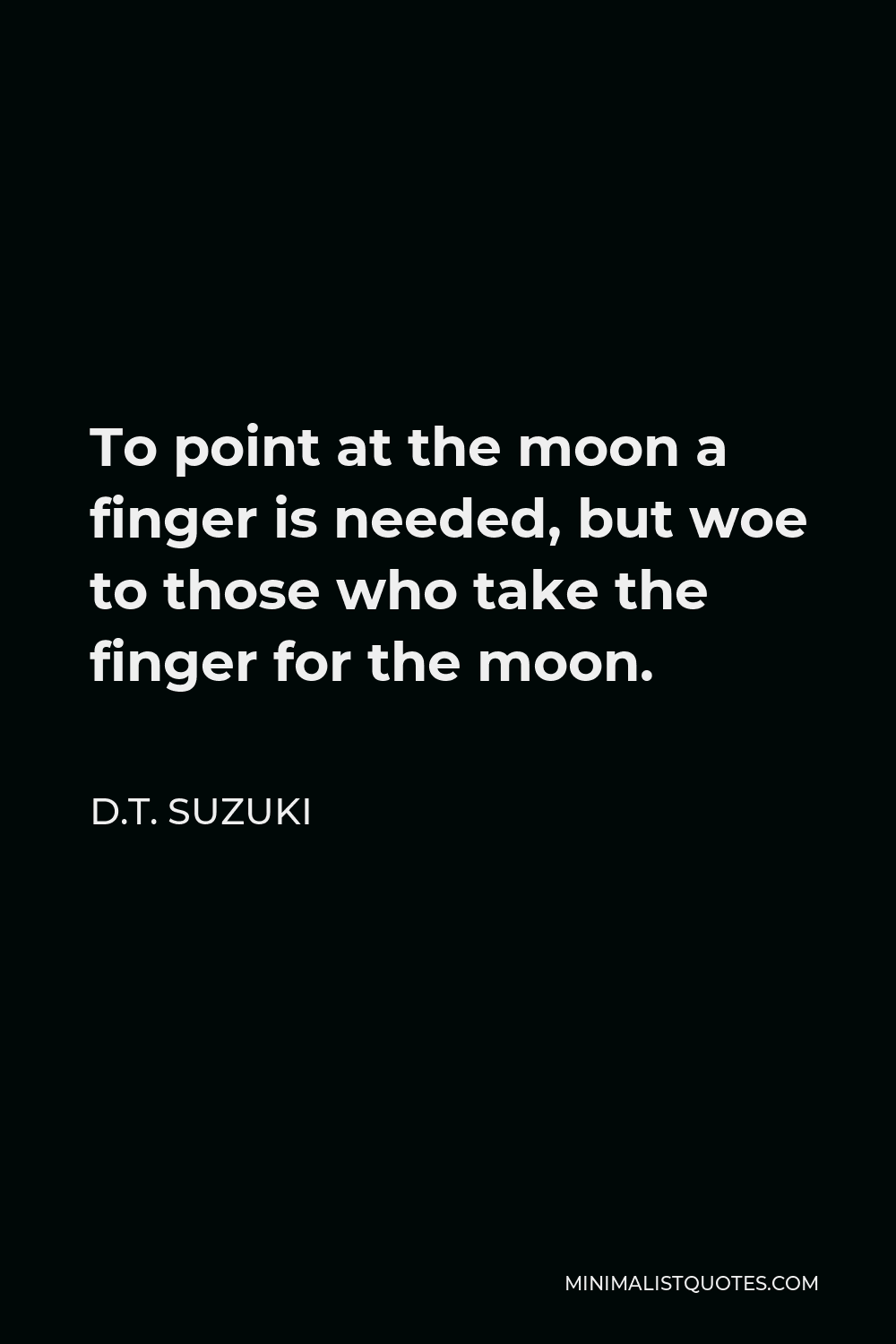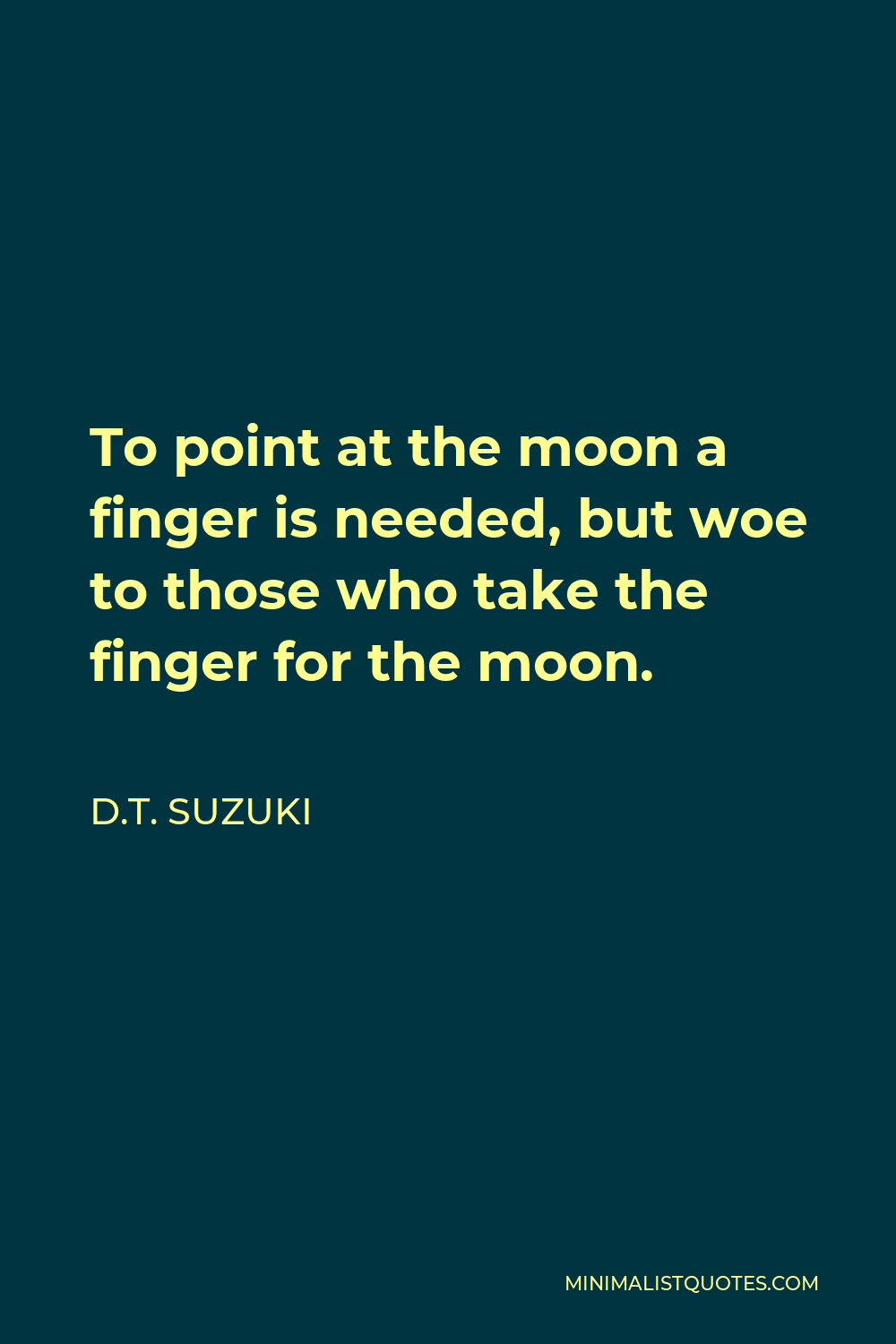When the identity is realized, I as swordsman see no opponent confronting me and threatening to strike me.
D.T. SUZUKITo point at the moon a finger is needed, but woe to those who take the finger for the moon.
More D.T. Suzuki Quotes
-







-





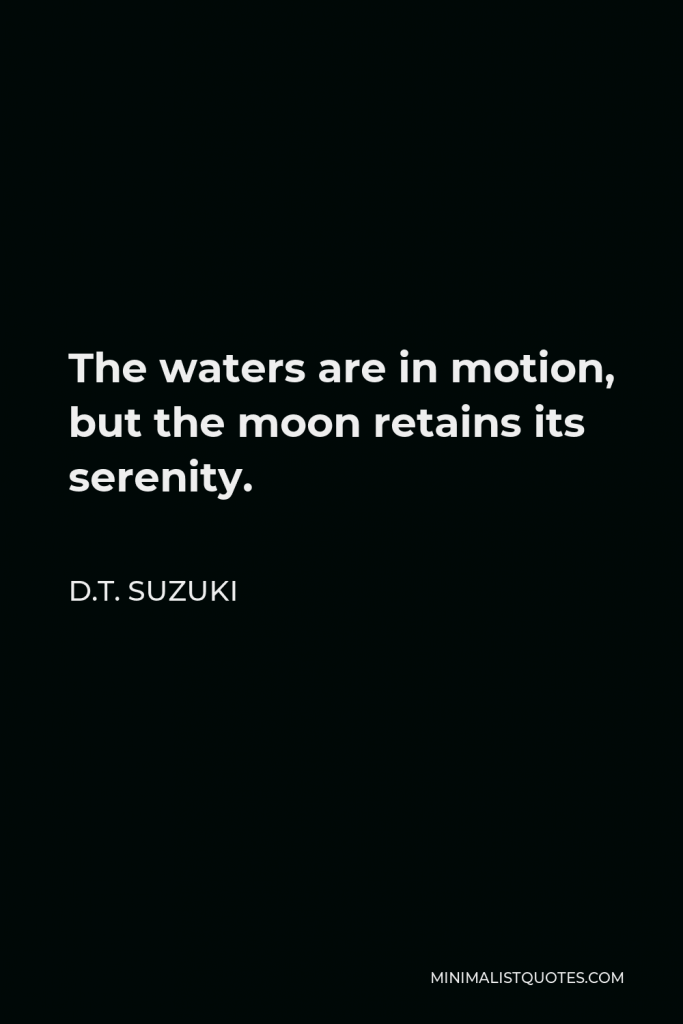

The waters are in motion, but the moon retains its serenity.
D.T. SUZUKI -





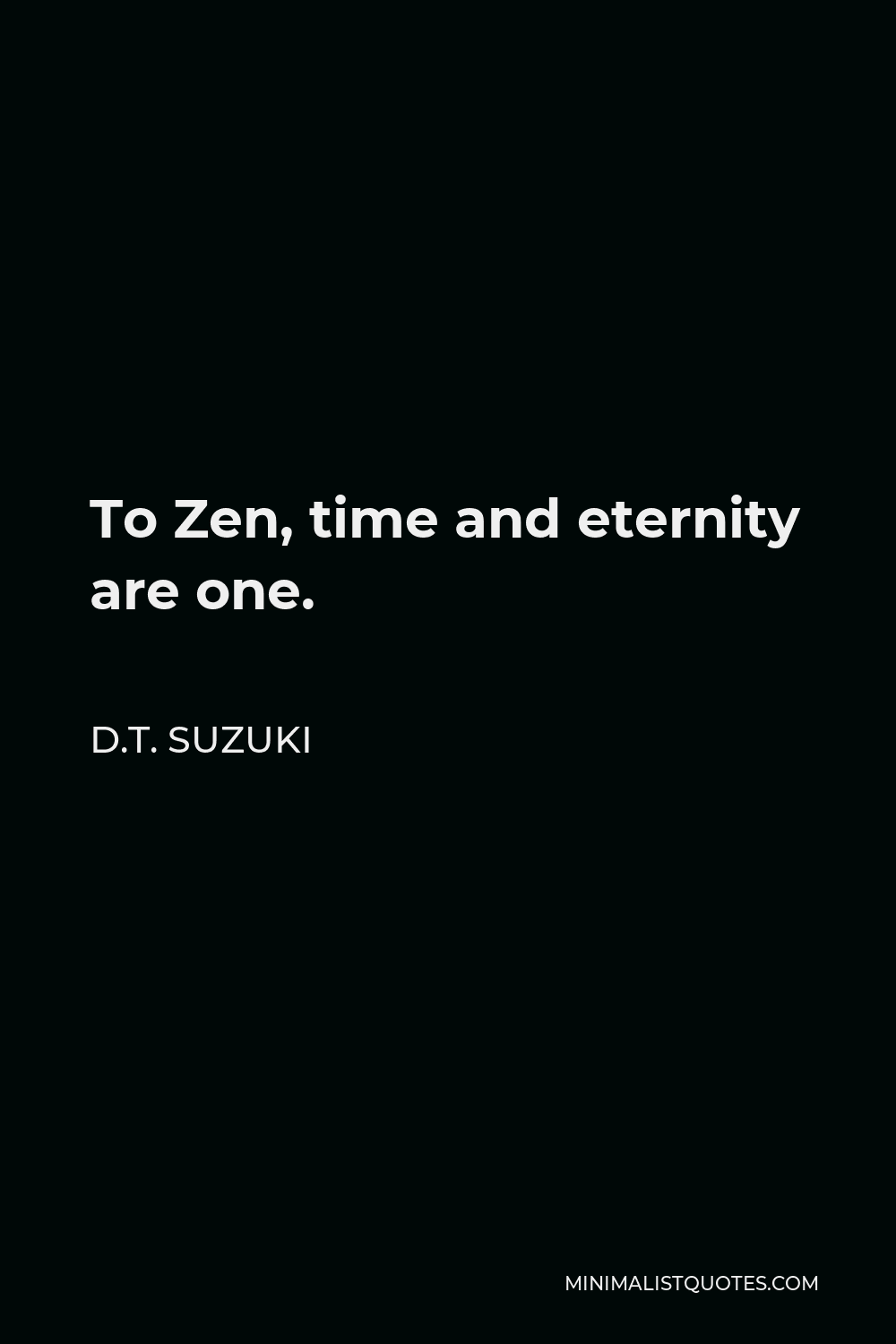
To Zen, time and eternity are one.
D.T. SUZUKI -





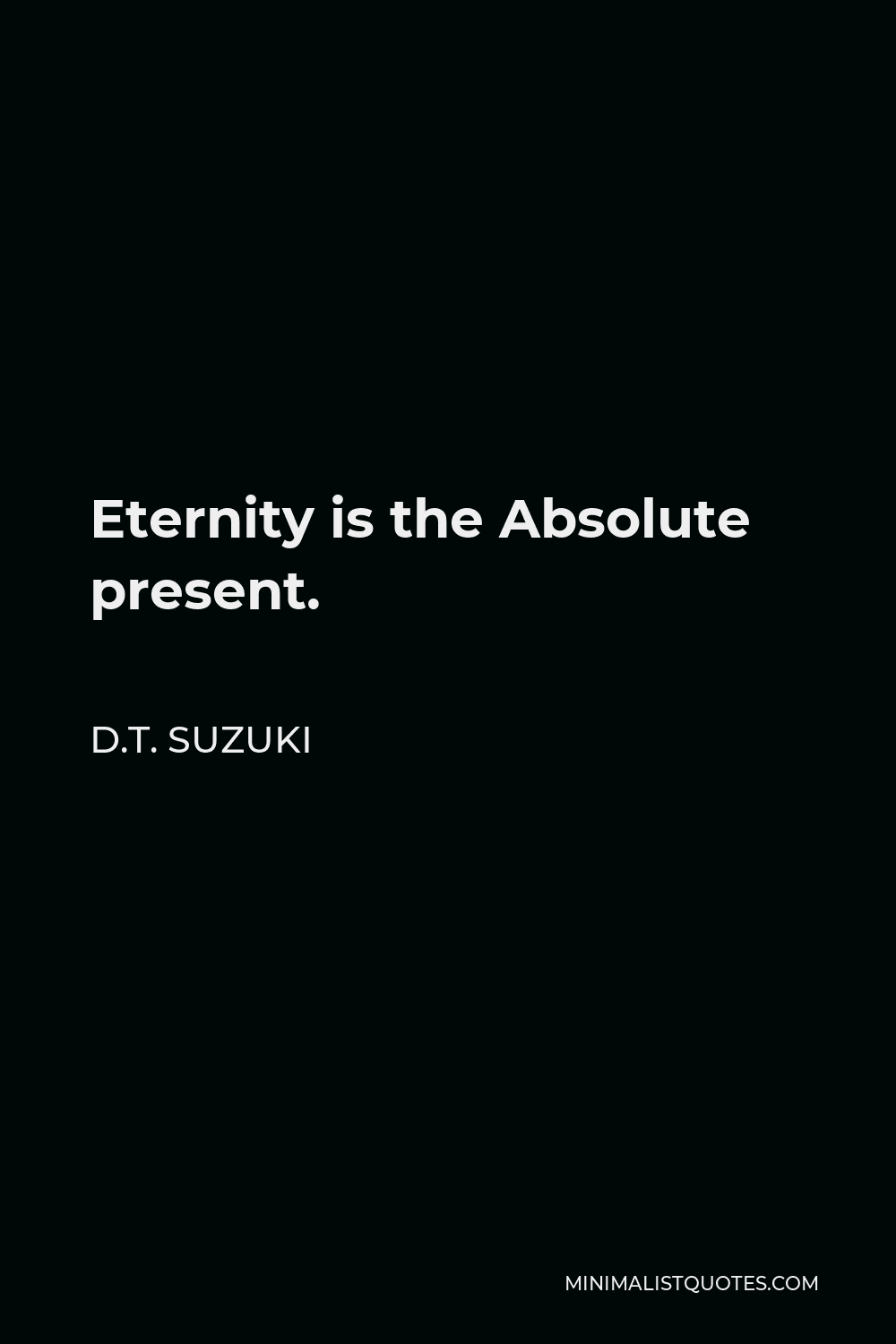
Eternity is the Absolute present.
D.T. SUZUKI -





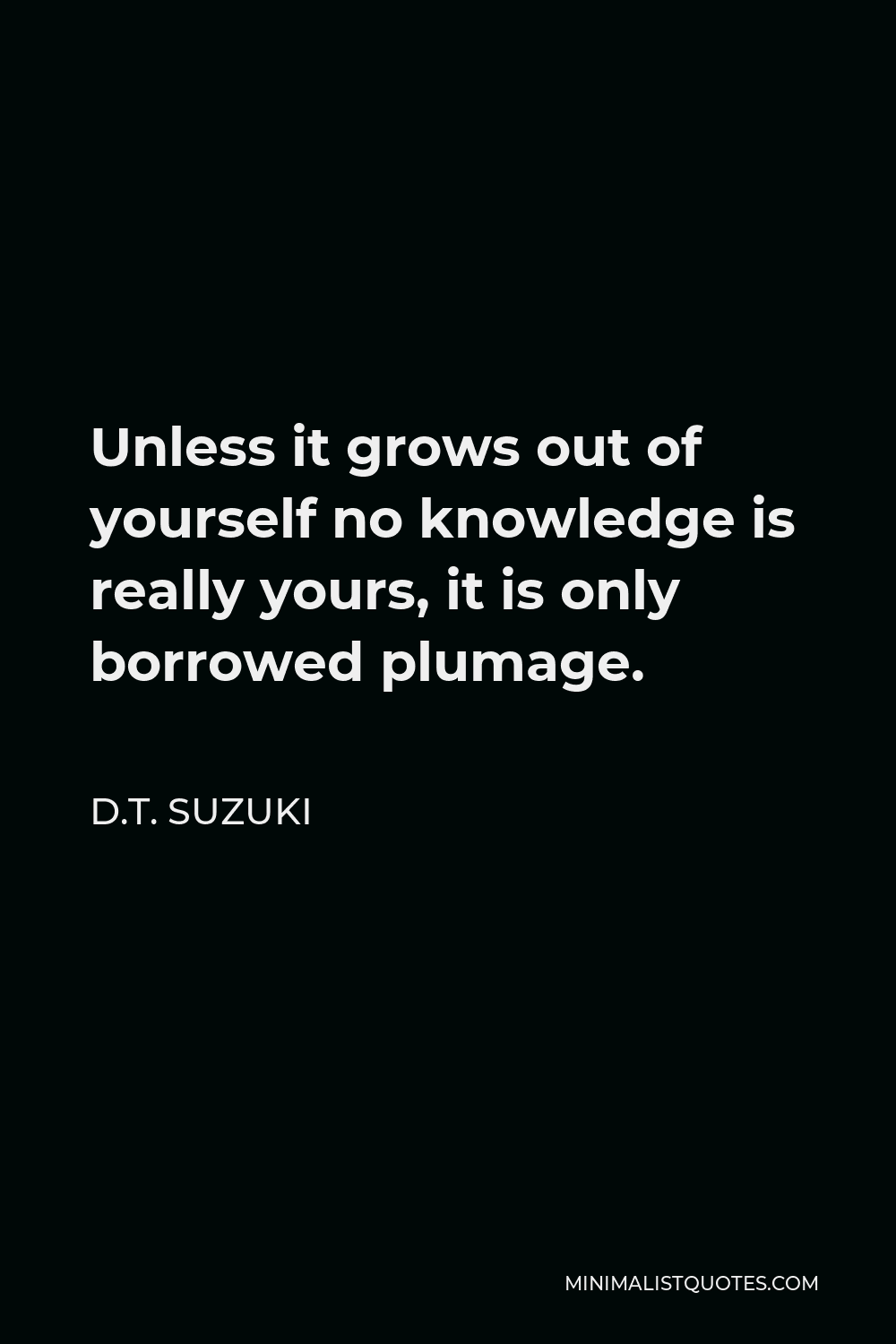
Unless it grows out of yourself no knowledge is really yours, it is only borrowed plumage.
D.T. SUZUKI -





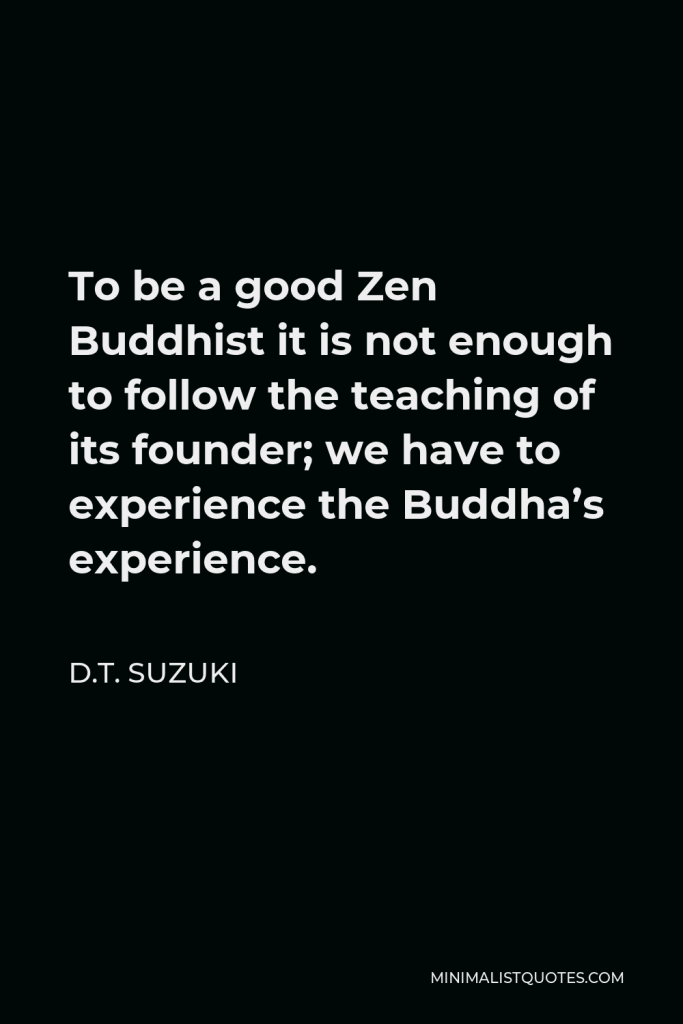

To be a good Zen Buddhist it is not enough to follow the teaching of its founder; we have to experience the Buddha’s experience.
D.T. SUZUKI -





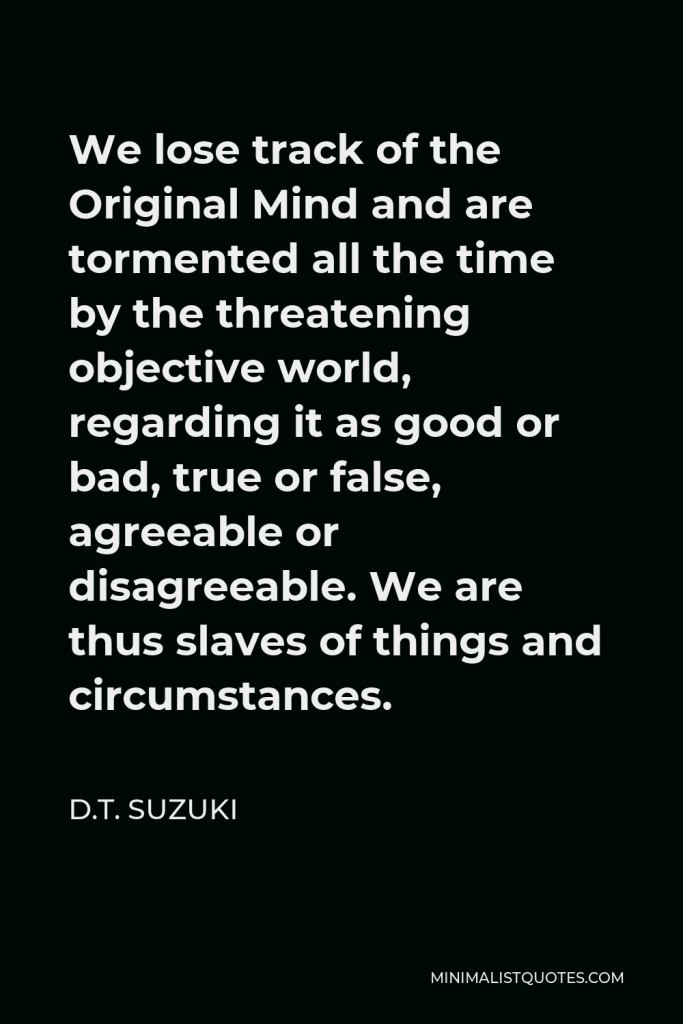

We lose track of the Original Mind and are tormented all the time by the threatening objective world, regarding it as good or bad, true or false, agreeable or disagreeable. We are thus slaves of things and circumstances.
D.T. SUZUKI -





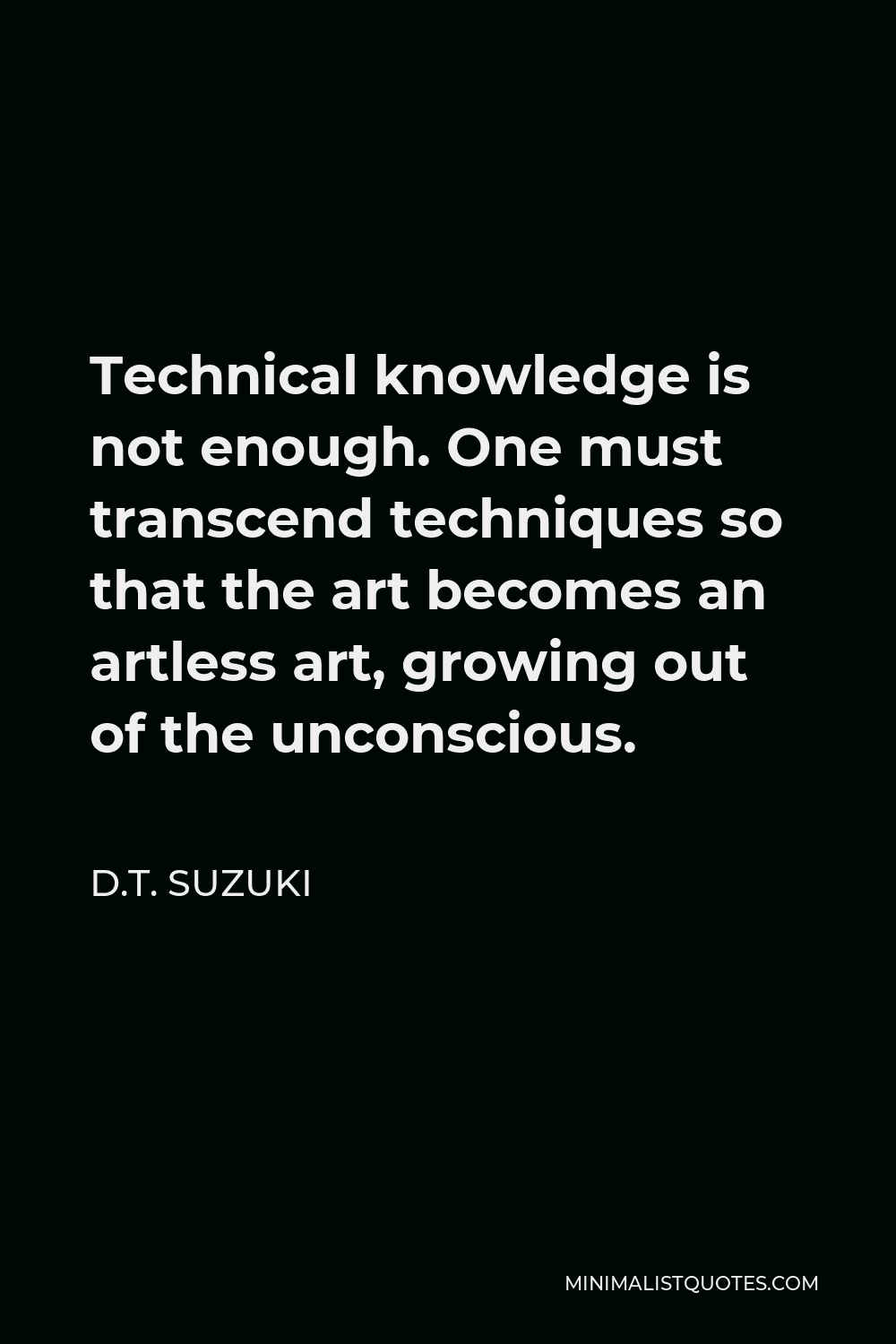
Technical knowledge is not enough. One must transcend techniques so that the art becomes an artless art, growing out of the unconscious.
D.T. SUZUKI -





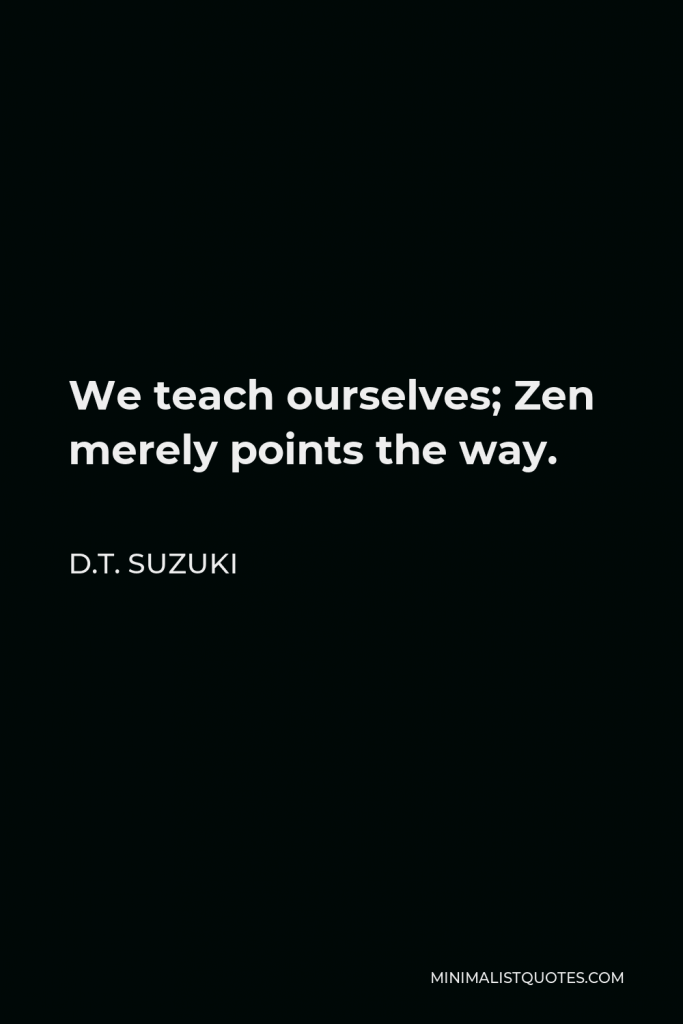

We teach ourselves; Zen merely points the way.
D.T. SUZUKI -





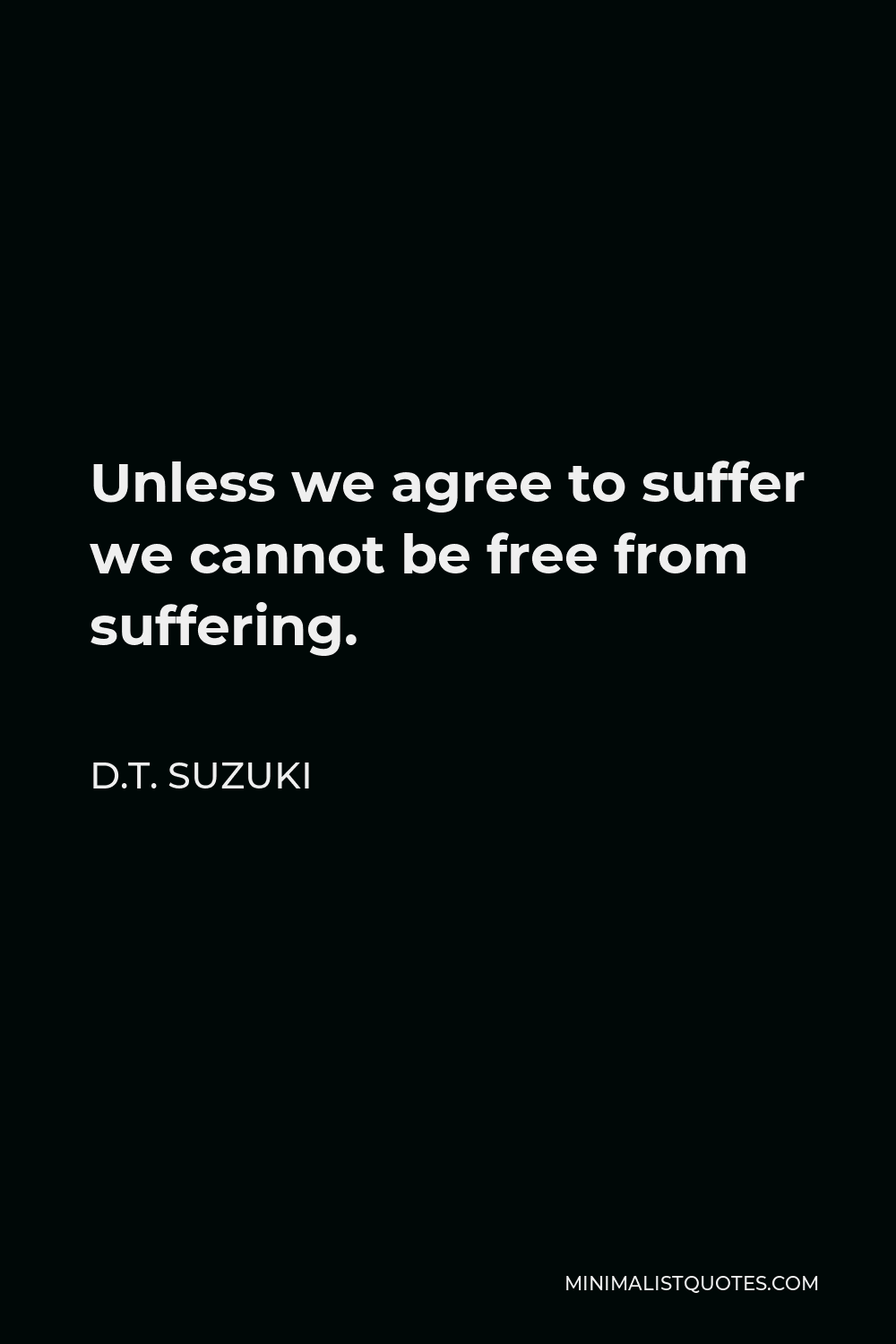
Unless we agree to suffer we cannot be free from suffering.
D.T. SUZUKI -





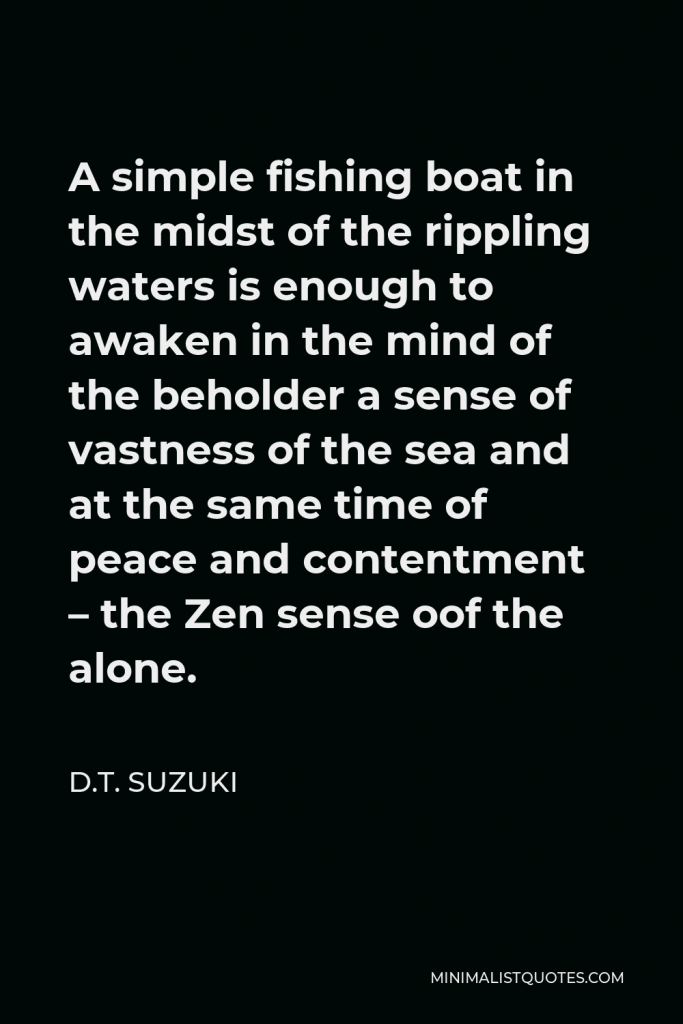

A simple fishing boat in the midst of the rippling waters is enough to awaken in the mind of the beholder a sense of vastness of the sea and at the same time of peace and contentment – the Zen sense oof the alone.
D.T. SUZUKI -





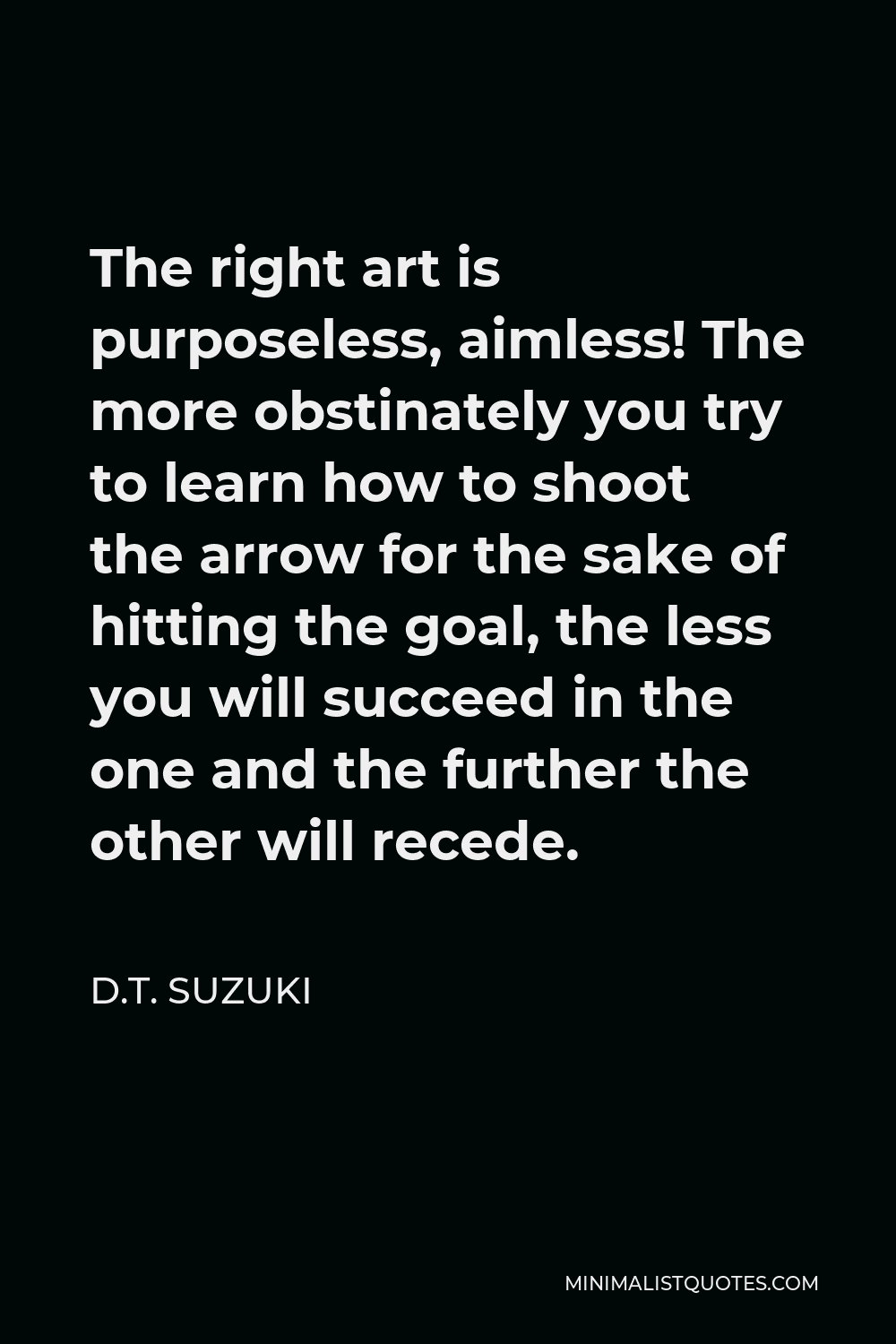
The right art is purposeless, aimless! The more obstinately you try to learn how to shoot the arrow for the sake of hitting the goal, the less you will succeed in the one and the further the other will recede.
D.T. SUZUKI -







The more you suffer the deeper grows your character, and with the deepening of your character you read the more penetratingly into the secrets of life.
D.T. SUZUKI -






If you have attained something, this is the surest proof that you have gone astray. Therefore, not to have is to have, silence is thunder, ignorance is enlightenment.
D.T. SUZUKI -





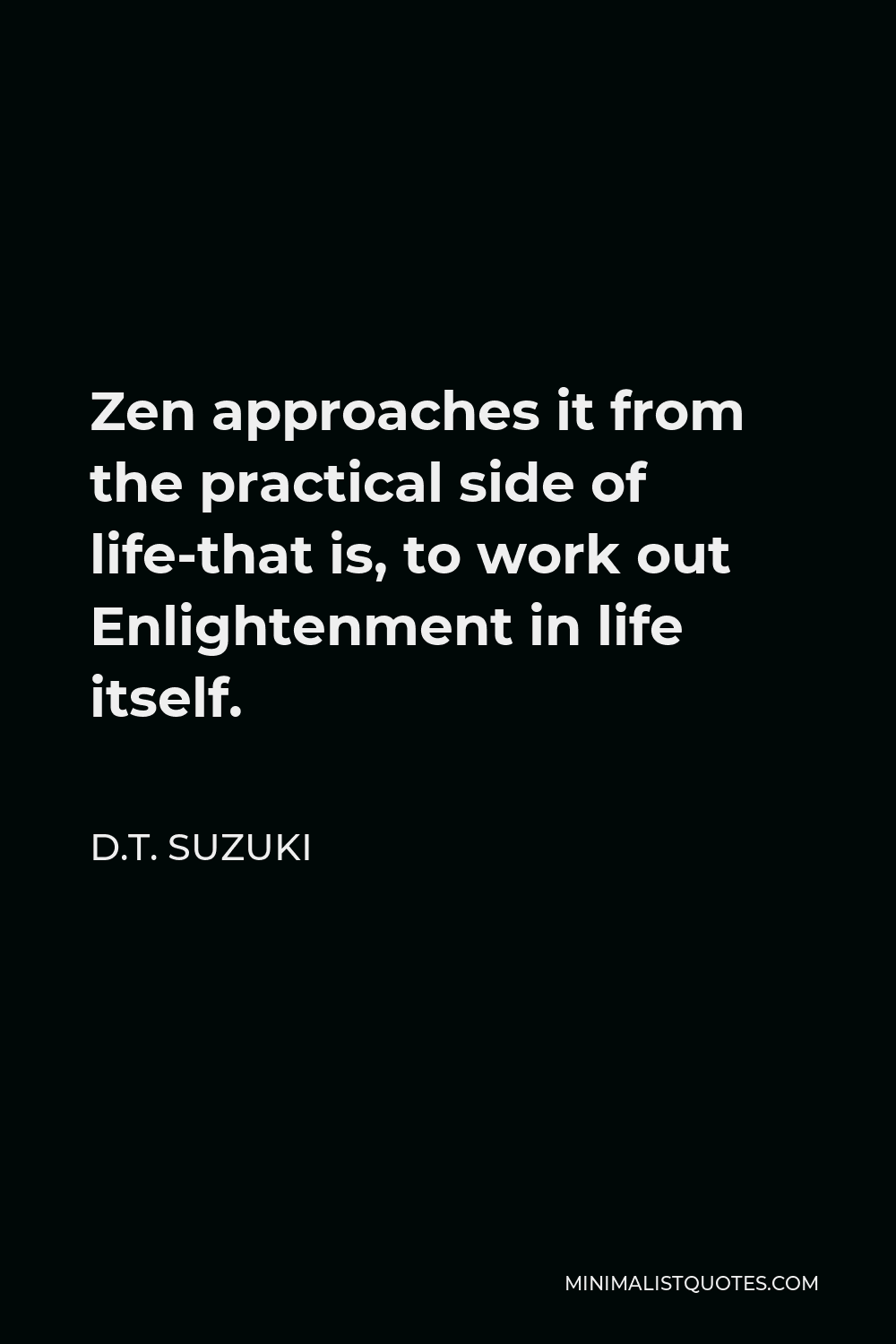
Zen approaches it from the practical side of life-that is, to work out Enlightenment in life itself.
D.T. SUZUKI -





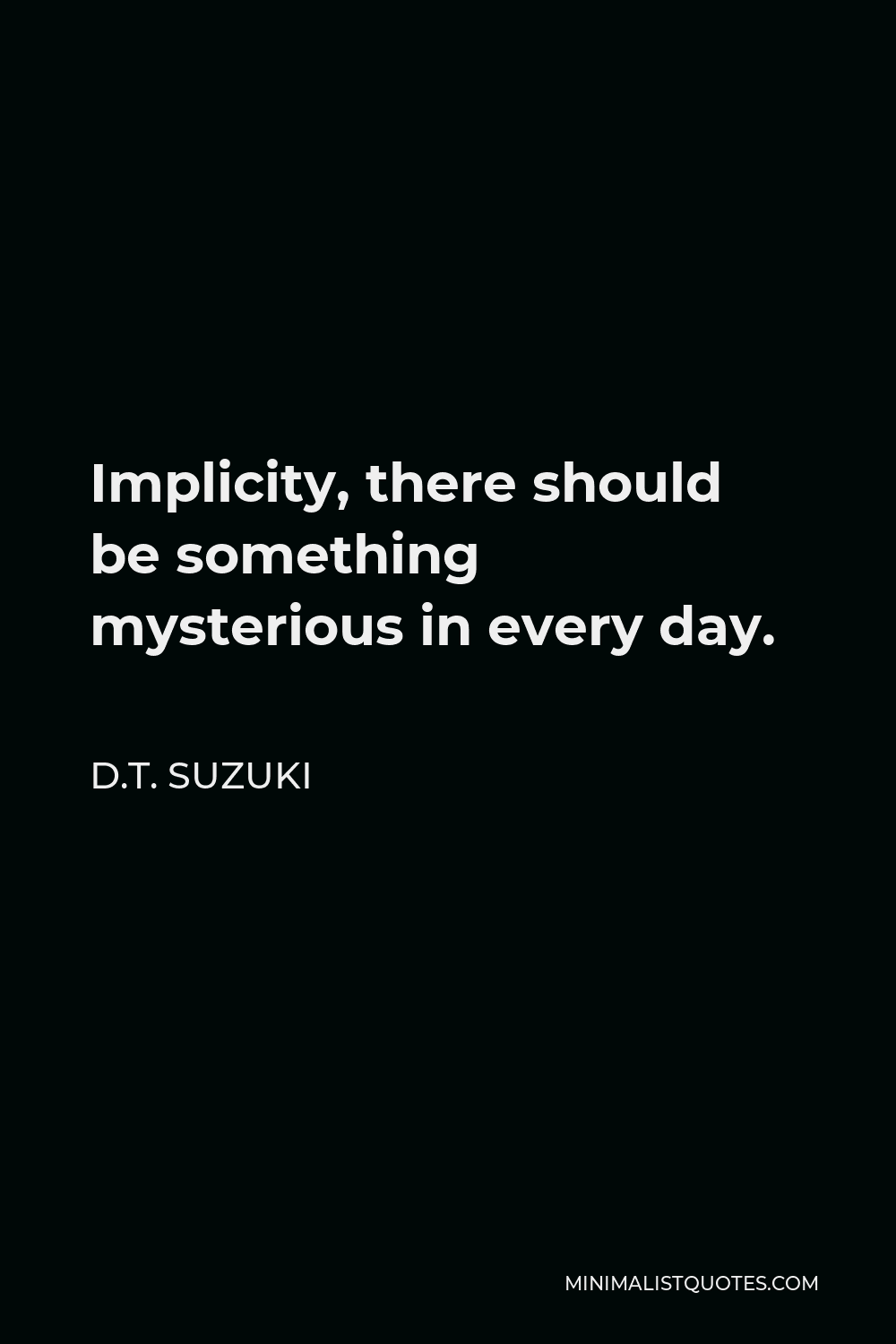
Implicity, there should be something mysterious in every day.
D.T. SUZUKI
